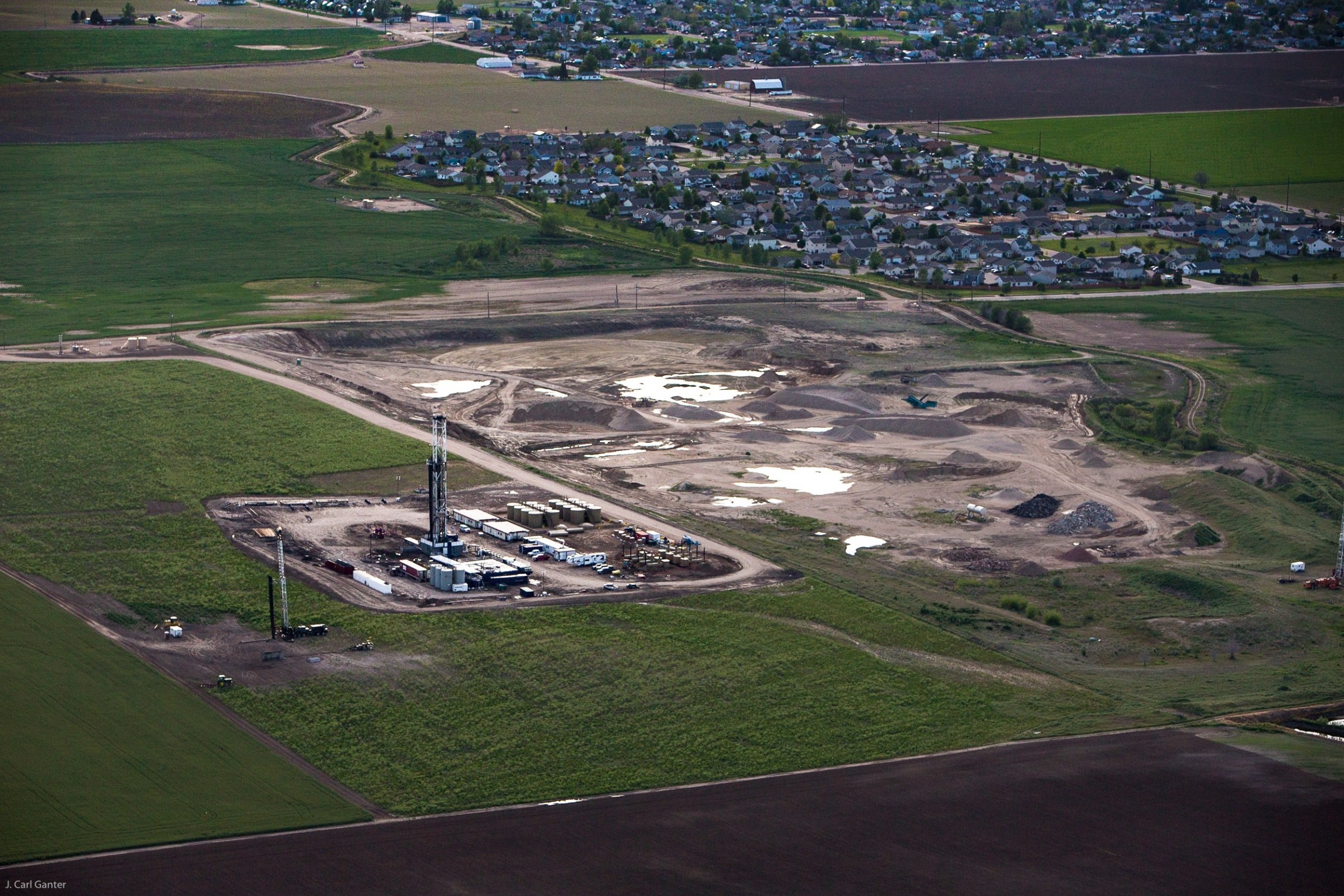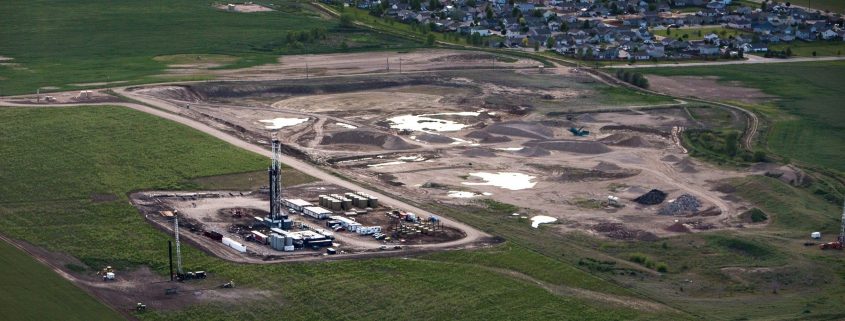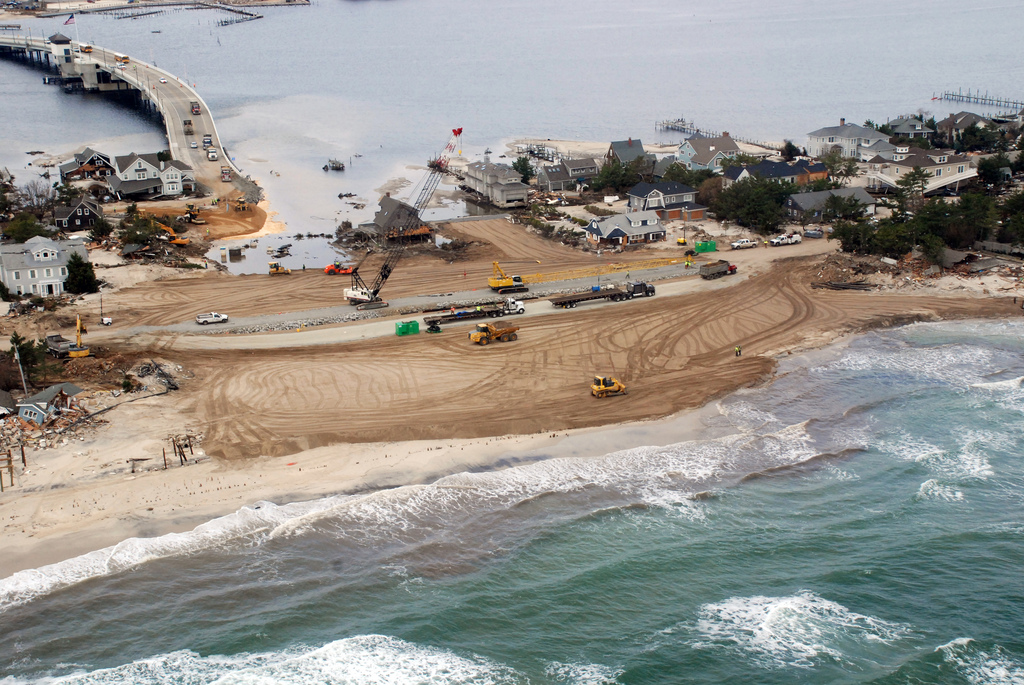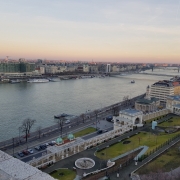2018 Election: Voters Reject Stricter Rules for Oil, Gas, and Mining
Water protections and spending were at stake in state and local ballot initiatives.

Proposition 112, which would have increased the distance between new oil and gas wells and homes, schools, and water sources, was rejected in Colorado. Photo © J. Carl Ganter/Circle of Blue
By Brett Walton, Circle of Blue
Voters in three western states rejected citizen-driven ballot measures that would have placed stricter rules on the fossil fuel and mining industries in order to protect water and wildlife, while Washington state voters opposed a carbon tax that would have provided funds for water and ecosystem projects.
Losses by green groups in Alaska, Colorado, and Montana contributed to a 2018 election in which water-related policies and funding were on the ballot in at least a dozen local and state initiatives.
In two other high-profile decisions, voters in Baltimore backed a first-ever municipal ban on privatization of a city water utility while Californians uncharacteristically rejected an $8.9 billion bond for water projects.
In western states, extractive industries, which spent tens of millions of dollars to oppose the measures, avoided more restrictive permitting rules designed to minimize harm to water sources.
In Alaska, Ballot Measure 1 aimed to defend fish habitat from damage by new development, which includes not only fossil fuel projects but any construction that would disturb watersheds that nurture salmon and other anadromous fish. The measure, which would have expanded state permitting authority, lost by a margin of 64 percent to 36 percent.
The oil and gas industry were targets in Colorado, where Proposition 112 would have pushed new fossil fuel infrastructure farther from schools, homes, businesses, and water sources. The proposal would have lengthened setback distances for developments not on federally managed public land from 500 feet to 2,500 feet, and allowed local jurisdictions to establish even tougher limits. Voters rejected the proposal by a 57-43 margin.
In Montana, supporters of Initiative 186 wanted to ensure that new hardrock mines would not require perpetual water treatment after closure. The initiative is losing 57 percent to 43 percent, with three-quarters of precincts fully reporting results.
Water Infrastructure Initiatives
A second water theme of the midterms was infrastructure funding.
Baltimore became the first U.S. city to ban the sale or lease of its municipal water system when a large majority of voters approved Question 3, by a margin of 77 percent to 23 percent.
Two small bonds — $47 million in Rhode Island for water systems and environmental cleanup and $30 million in Maine for wastewater treatment — passed easily.
California voters, usually keen to support water projects, bucked recent history in rejecting Proposition 3, an $8.9 billion bond. The margin was 52 percent to 48 percent. The editorial boards of the state’s largest newspapers opposed the expenditure, arguing that beneficiaries of the projects should pay, not the general taxpayer.
Two local measures in California performed better. Eighty-two percent of San Francisco voters approved a $425 million bond to repair the century-old Embarcadero sea wall so that it can better withstand earthquakes and rising seas.
In Los Angeles County, a parcel tax on paved surfaces passed with two-thirds voting in favor. Expected to raise $300 million per year, the tax will pay for stormwater projects in the nation’s most populous county.
Meanwhile, three-quarters of Houston voters reaffirmed support of a fund to pay for stormwater projects and street repairs. The ReBuild Houston program was established eight years ago, but the Texas Supreme Court ordered it back to the ballot with wording that clarified the source of funding, which is a fee levied on the amount of paved surface.
Old battles were resurrected elsewhere, too. In an echo of 2016, when a similar measure was on the ballot, Washington state voters rejected a carbon tax by a margin of 56 to 44. A quarter of the revenue from the tax — estimated at $2.3 billion over the first five years — would have been directed toward clean water and forest restoration.
Brett writes about agriculture, energy, infrastructure, and the politics and economics of water in the United States. He also writes the Federal Water Tap, Circle of Blue’s weekly digest of U.S. government water news. He is the winner of two Society of Environmental Journalists reporting awards, one of the top honors in American environmental journalism: first place for explanatory reporting for a series on septic system pollution in the United States(2016) and third place for beat reporting in a small market (2014). He received the Sierra Club’s Distinguished Service Award in 2018. Brett lives in Seattle, where he hikes the mountains and bakes pies. Contact Brett Walton










Leave a Reply
Want to join the discussion?Feel free to contribute!